
10 STRATEGIES FOR WINNING BRANDS
In this COVID-19 crisis, organisations are having to react with the fast-forward button permanently pressed. Behaviours and attitudes are changing daily as we struggle to comprehend a ‘new normal’ that’s shifting before our eyes. Even when this crisis calms down – and it will – that fast-forward button will still be in play because rebuilding brand, business and identity will be hectic and uncertain.
Organisations are still playing catch up to new realities but the smart ones are also showing much-needed strategic leadership in the chaos. They’re not just trying to understand how and why things have changed and are changing. They are trying to understand how and why they will change.The businesses that train their sights on this latter perspective will be the ones that will win. Let’s not be shy about using that word. Brands must be adapting to win rather than adapting to cope. Constantly flexing to find new ways of operating – and of doing good, being generous, moving beyond what is expected.
The most successful organisations will be those already preparing for a future we can’t yet see with clarity. Who anticipate not just change in a time of crisis but opportunity. Who recognise that winning is not just desirable but essential.
This rise of corporate integrity and trust will be crucial if organisations want to win. They will always sell but now they must contribute too by looking outside of themselves.
And winners are already emerging. High Street brands like Starbucks supplying free coffee to first responders and fast food chain LEON offering meals to NHS workers. Supermarkets prioritising community needs, creating new jobs and leading by example. Well-known British pub chain Fullers waiving all rents to help its staff. L’Oreal and Brewdog diverting resources so they can make hand sanitisers for global distribution. BP offering free fuel for emergency services. NBA players taking a 25% pay cut and football players deferring their wages to help pay their clubs’ staffing costs.
Equally, we won’t forget the businesses that treat their staff – and us – badly. WeWork for staying open and still charging rent to members who can’t come to work, without any concessions. Wetherspoons for the callous way it initially treated its laid-off workers. Sports Direct for inflating prices on its website the day after it was told to close its shops. British banks for hiking the interest rates on loans in the same week that the Bank of England cut its interest rate.
This rise of corporate integrity and trust will be crucial if organisations want to win. They will always sell but now they must contribute too by looking outside of themselves. Quarterly updates may include a detailed assessment of how help is being offered to others. Charitable ventures could be at the heart of strategic thinking rather than seen as a CSR sideline.
Attitudinal shifts amongst consumers are leading these changes. People are reassessing what is important to them and businesses will need to mirror that behaviour. It’s hard to predict which of those shifts are temporary and which more permanent. Will we still be as materialistic post-virus? Will our new-found desire for localised volunteerism be short-lived? Will we emerge with the same conscious desire to be resourceful and banish waste from our lives?
Winning organisations will need to be inspirational leaders. They will need to take decisions at speed and with greater agility.
Winning organisations will need to be inspirational leaders. They will need to take decisions at speed and with greater agility. They will need to be on ‘our side’ like never before. They will need to promote new behaviours that reflect real people’s experiences and emotions rather than stiffly-corporate purpose. They will need to help rebuild society as well as their profits, with altruistic intent not mere self-promotion.
This is the war mentality of a modern age. And, below, we have outlined some new themes and strategies. They will change over the coming weeks — after all, days ago we were living in an entirely different world. What will it be like in 10 weeks? So as things change, it will be great to see the strategies brands employ to survive, thrive and win.
The strategies are not all right for everyone. It is a strategic choice. The aim must be to focus on one or two and commit to delivering them well. To build a strong foundation for the future we need to be readying ourselves for, today.
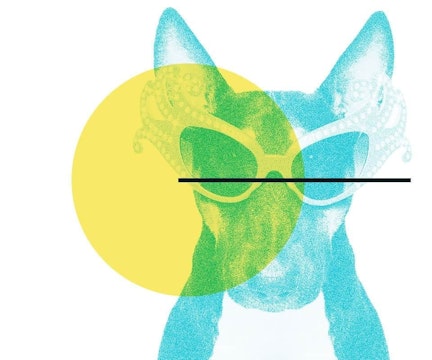
AUTHENTIC
LIVE
YOUR
PRINCIPLES
If businesses are to adopt new behavioural strategies they will need to do so authentically. That means the gestures made now must be the start of something bigger when things get back to normal. A commitment to help society grow again, for instance, or provide opportunities to those most in need.
Unless your post-crisis business is inextricably bound to the purposeful principles you espouse in that crisis, organisations and leaders will appear shallow and self-serving. Until now, brands might have been able to get away with a ‘wishy-washy purpose’. In the new world, such window-dressing will be derided and dismissed.
EMOTIONAL
STORIES
OF YOU
NOT US
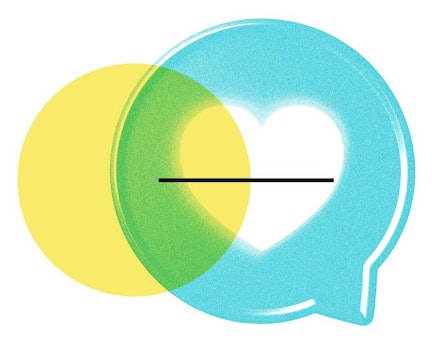
Real emotional capital will come from the way consumers inspire how organisations behave. It’s their stories and the impact they have which will take precedence over the brand story. Already, we’re watching political and business leaders make transformational decisions based on real people’s stories and their emotional pleas about emerging needs.
The video that tearful UK nurse Dawn Bilbrough made when she found that panic-buyers had stripped her local supermarket shelves, had more impact on brands than anyone could have anticipated. Within 24 hours every supermarket had pledged to set aside part of every morning for frontline workers to shop.
When an incredulous Piers Morgan expressed on live TV that he would pay the parking tickets of every NHS worker who didn’t have the cash for the hospital car park after a nurse had told her story, the government had, by the end of the day, made all hospital parking free. With people leading change, organisations will need to provide emotionally resonant stories if they are to matter more.

SOLIDARITY
LET'S
STICK
TOGETHER
Coronavirus is, like it or not, who we are. Nothing we have experienced in peacetime has brought us together like this, sharing a responsibility to help society function properly. ‘We are all in it together’ is a phrase that has finally found its true meaning. And organisations must display this new sense of collaboration and togetherness.
The new reality is that some things are too important to compete against for, they require a togetherness of purpose and action. Internally and externally, teamwork can’t just be part of the strategy – it is the strategy. And businesses need to show a greater commitment to stick with their customers, to offer them loyalty incentives that see them through the turmoil. Relationships that endure tough times and the ones that stay stronger for longer. This is the moment for brands to show solidarity.
REWARD
CREATIVE
INCENTIVES
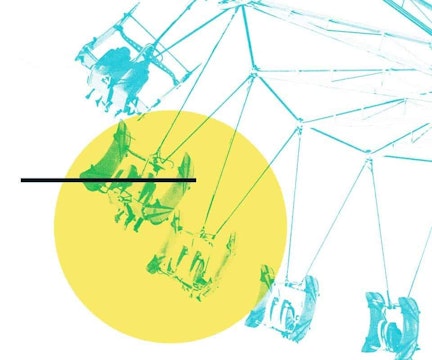
If some brands even want to have a business in the future, they need to start behaving creatively and offering customer incentives now, not at some point when we are emerging from this crisis. This is where that entrepreneurial dynamism needs to be unleashed. Business might be slow – or non-existent – but the relationship you have with customers is perpetual.
One day, for instance, cruise companies will enjoy a bookings boom but the time to offer goodies is now, the time to be creative in the way they engage with consumers is now. Push purchasing into the future to make it easier for people to buy again. The strongest organisations will emerge even stronger because of the incentivising actions they adopt now.
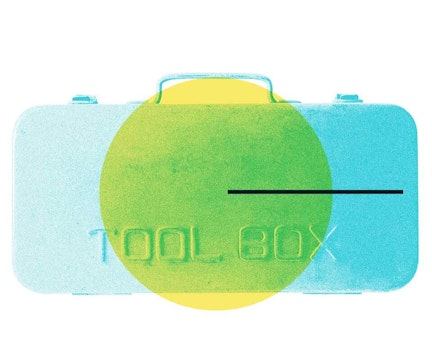
UTILITY
YOUR VALUE
WILL BE IN HOW
USEFUL YOU ARE
The usefulness of a brand to people’s daily lives is going to be essential. For instance, to help people stay fit at home, Nike – along with other sports brands – has launched a special app to increase fitness motivations. People may not be buying new shoes and equipment but they are engaging with the brand because it is offering something useful. Usefulness in these difficult times is the best way of connecting to people and serving their needs. Apps like Houseparty, for instance, which is becoming increasingly relevant to people’s daily need for interaction and is, thus, useful.
COMMUNITY
BE DRIVEN BY
WHAT YOU CAN
CONTRIBUTE
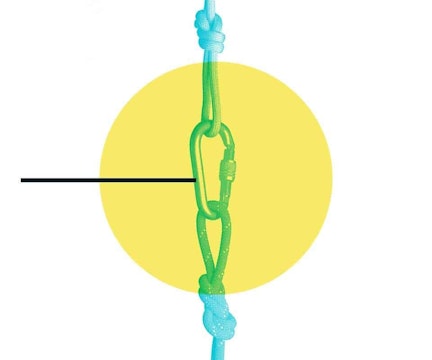
How valuable a brand is in society will be judged as favourably as what a brand makes and sells. Companies such as Dyson, 3M, Ford and Tesla are pumping resources into respiratory equipment. LVMH are now producing hand sanitiser for Parisian hospitals, but that commitment to being value-driven and helpful will need to continue after the crisis ends.
Other brands are putting charity at the heart of what they do, not the side. Brands that find a way to help communities during the crisis need to establish a way to make this matter to their identity in the future – ensuring they are as driven by way they contribute to communities. And those that are already proud of the way they help society?
Well resting on laurels will win few plaudits – perhaps now is the time to push further and show a generosity of spirit that exceeds expectations.
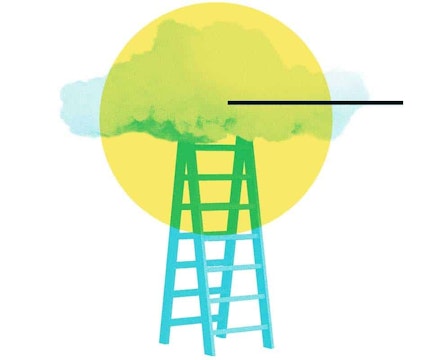
DELIVER
INNOVATE
DIGITALLY
Working from home will hasten the shift towards digital-first. In a few months, our willingness and ability to engage virtually will have transformed. Which is why brands need to innovate now so that they can deliver experiences in a different, virtual way, to match changing consumer behaviours. A popular chain of US hair salons, Supercuts, has adapted to offer online haircutting tutorials, while sports such as IndyCar and Formula One are battling it out in virtual series.
ESCAPE
WE
NEED
ESCAPISM

Never before has a constant stream of viral videos, silly memes and tasteless jokes been so welcome. Our temporary domestic prisons have reminded us all – and hopefully businesses – of the true value of humour, entertainment and laughter. How it can connect us to each other. We need a laugh and that need will only grow over the coming weeks and months. Brands need to be supplying that content.
Ikea have encapsulated this with its ‘Piece Together’ campaign, which pokes fun at furniture assembly, offering consumers an ‘instruction-free’ challenge to tackle during lockdown. Similarly, with live sport put on ice, UK betting company Paddy Power launched its own comedy series called The Mascot, which saw the brand’s share of voice on social media surge.

EMPATHY
SHOW EMPATHY
WITH INTEGRITY
People want businesses they can trust – and trust in a time of crisis is very different to when things are going well. Empathy is essentially the communication of a message that implies you are not alone. Brands need to understand the predicament and emotions of their customers and they need to communicate that understanding. In this rudderless world, brands can provide leadership if they build an emotional bond with their audiences, if they put people first and set themselves up as principled, open, honest and bold.
HEROES
TALK MORE
FROM THE
FRONTLINE

Every brand has heroes right now, people with whom the public can identify. They’re not the CEOs but those workers who are going above and beyond to represent those brands in the work that they do. Keeping things ticking over, making personal sacrifices because they’re proud of the company they work for, innovating in their own personal ways.
If businesses want to shout about who they are, then they should first of all shout about the people who make them who they are and tell those stories with urgency and passion. Kraft-Heinz achieved this with its ‘We got you America’ advert – directed and filmed by plant employees – reassuring the nation it would keep them fed during food shortages.
DOWNLOAD THE BOOKLET






